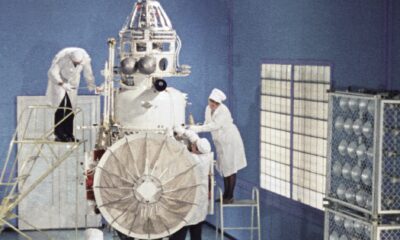Self Development
How to Regain Confidence After Falling Prey to a Scam

Hope is not wishful thinking, but a state of being and a skill that has been proven to help people achieve success in life.
On the other hand, wishful thinking is like having dreams in the sky without a ladder to climb, having a destination without a map, or trying to operate a jet-engine airplane without instructions. It may sound nice, but it is impossible to realize without the necessary tools.
Understanding Real Hope
Real hope is actionable, practical, and realistic. It is something that can be learned and put into practice.
One popular concept is Hope Theory, which is used in colleges to study how hope affects students’ academic performance. Research has shown that students with high levels of hope tend to achieve better grades and are more likely to graduate compared to those with lower levels of hope.
Hope can be broken down into two components:
- Pathways – This involves creating plans and strategies to achieve goals.
- Agency – This is the belief that one has the ability to accomplish their goals.
The Impact of Hope
According to Webster’s Dictionary, hope is defined as: “desire accompanied by expectation of or belief in fulfillment.”
As humans, we have the capacity to envision our desires and, through hope, turn them into reality.
Personal Experience with Hope
For many years, I felt hopeless while working as a front desk agent at a luxury hotel. The feeling of hopelessness was overwhelming until I decided to take action.
By allowing myself to hope for something better and creating pathways to success, I was able to regain agency in my life. Through self-help books and mentorship, I transformed my outlook and found joy in hope.
Benefits of Hope in Life
While wishful thinking may lead to disappointment, real hope is linked to success in various areas of life. Hopeful individuals tend to demonstrate better problem-solving skills, maintain healthier relationships, stay motivated to achieve goals, exhibit a strong work ethic, and have a positive outlook on life.
These benefits can have a positive impact on work, family, habits, mental health, physical health, and spirituality.
Developing the Skill of Hope
As Jean Giono once said, “There are also times in life when a person has to rush off in pursuit of hopefulness.”
If you find yourself in one of those times, here are some ways to cultivate the skill of hope:
1. Dare to Dream
To nurture hope, start by believing in the possibility of your dreams. Reflect on your passions, values, and aspirations. Write down your dreams, share them with others, and create a vision board to make them tangible.
2. Build a Hopeful Environment
Set goals, visualize success, and create a resource library of inspiring materials to keep yourself motivated and focused on your aspirations.
3. Embrace Challenges
Facing challenges head-on builds confidence and enhances problem-solving skills. Engage in activities that challenge you to strengthen your hope.
4. Seek Wisdom
Learn from the experiences of others who have achieved what you aspire to. Seek wisdom from books, blogs, and mentors to ground your hope in actionable steps.
5. Celebrate Small Victories
Reflect on past successes and the feelings of accomplishment they brought. By acknowledging your small wins, you can fuel your hope for future achievements.
In Conclusion
Hope is a powerful skill that can transform your life. By dreaming, creating a hopeful environment, facing challenges, seeking wisdom, and celebrating victories, you can develop the real hope needed for success in all areas of life.
Let hope be your guide to a brighter and more fulfilling future.
-

 Destination8 months ago
Destination8 months agoSingapore Airlines CEO set to join board of Air India, BA News, BA
-

 Breaking News10 months ago
Breaking News10 months agoCroatia to reintroduce compulsory military draft as regional tensions soar
-

 Gadgets4 months ago
Gadgets4 months agoSupernatural Season 16 Revival News, Cast, Plot and Release Date
-

 Tech News12 months ago
Tech News12 months agoBangladeshi police agents accused of selling citizens’ personal information on Telegram
-

 Productivity11 months ago
Productivity11 months agoHow Your Contact Center Can Become A Customer Engagement Center
-

 Gadgets4 weeks ago
Gadgets4 weeks agoFallout Season 2 Potential Release Date, Cast, Plot and News
-

 Breaking News10 months ago
Breaking News10 months agoBangladesh crisis: Refaat Ahmed sworn in as Bangladesh’s new chief justice
-

 Toys12 months ago
Toys12 months ago15 of the Best Trike & Tricycles Mums Recommend























